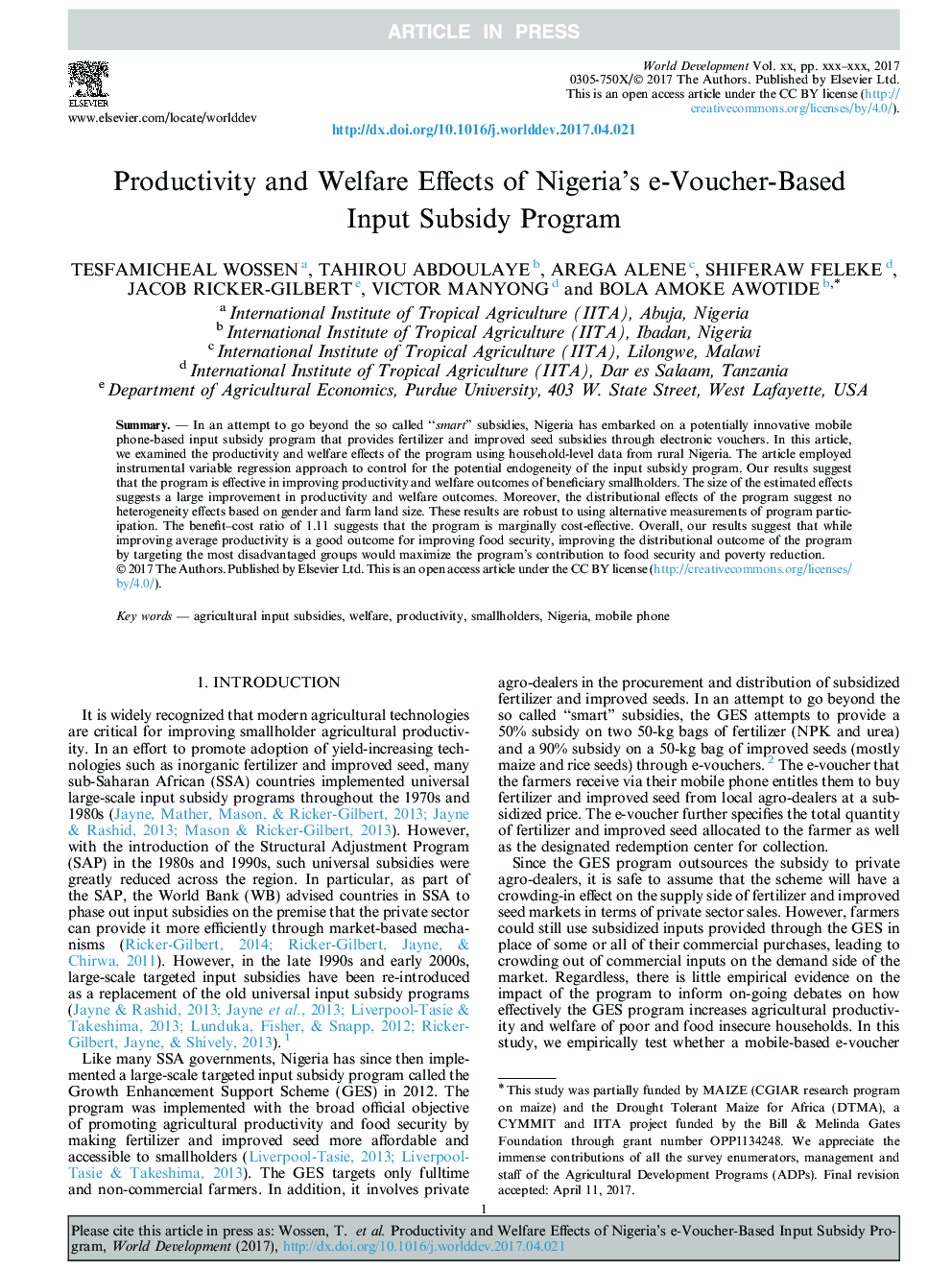| Article ID | Journal | Published Year | Pages | File Type |
|---|---|---|---|---|
| 5105185 | World Development | 2017 | 15 Pages |
Abstract
In an attempt to go beyond the so called “smart” subsidies, Nigeria has embarked on a potentially innovative mobile phone-based input subsidy program that provides fertilizer and improved seed subsidies through electronic vouchers. In this article, we examined the productivity and welfare effects of the program using household-level data from rural Nigeria. The article employed instrumental variable regression approach to control for the potential endogeneity of the input subsidy program. Our results suggest that the program is effective in improving productivity and welfare outcomes of beneficiary smallholders. The size of the estimated effects suggests a large improvement in productivity and welfare outcomes. Moreover, the distributional effects of the program suggest no heterogeneity effects based on gender and farm land size. These results are robust to using alternative measurements of program participation. The benefit-cost ratio of 1.11 suggests that the program is marginally cost-effective. Overall, our results suggest that while improving average productivity is a good outcome for improving food security, improving the distributional outcome of the program by targeting the most disadvantaged groups would maximize the program's contribution to food security and poverty reduction.
Related Topics
Social Sciences and Humanities
Economics, Econometrics and Finance
Economics and Econometrics
Authors
Tesfamicheal Wossen, Tahirou Abdoulaye, Arega Alene, Shiferaw Feleke, Jacob Ricker-Gilbert, Victor Manyong, Bola Amoke Awotide,
